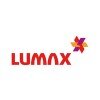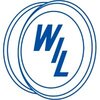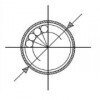
Get AmbitionBox App
Faster and better experience!

i
Roop Polymers
Filter interviews by
Roop Polymers Assistant Engineer Interview Questions and Answers
Roop Polymers Assistant Engineer Interview Experiences
1 interview found
I applied via Naukri.com and was interviewed in Feb 2021. There were 5 interview rounds.
Interview Questionnaire
3 Questions
- Q1. Types of Rubber material and what is mould design?
- Ans.
Rubber materials are of two types: natural and synthetic. Mould design is the process of creating a mold for a specific product.
Natural rubber is derived from latex, while synthetic rubber is made from petroleum-based chemicals.
Mould design involves creating a 3D model of the product and then designing a mold that can produce the product efficiently and accurately.
Factors such as material properties, part geometry, and...
- Q2. Process of compression and transfer mold?
- Ans.
Compression and transfer molding are processes used to create molded products.
Compression molding involves placing a preheated material into a heated mold and applying pressure to compress it into the desired shape.
Transfer molding involves heating a material in a chamber and then transferring it into a mold cavity under pressure.
Both processes are commonly used in the manufacturing of rubber and plastic products.
Compr...
- Q3. What is Chemical compounding ? What is tensile test?
- Ans.
Chemical compounding is the process of combining two or more chemicals to create a new substance. Tensile test is a test to measure the strength of a material.
Chemical compounding involves mixing chemicals to create a new substance with desired properties
It is used in various industries such as pharmaceuticals, cosmetics, and plastics
Tensile test measures the maximum stress a material can withstand before breaking
It is...
Interview Preparation Tips
Top trending discussions






Interview questions from similar companies

I applied via Job Fair and was interviewed before Mar 2021. There were 2 interview rounds.
I am graduation in Mechanical Engineering and also done my diploma mechanical automobile in ghaziabad
(1 Question)
- Q1. Tell me about yourself.
Interview Preparation Tips

I applied via Job Fair and was interviewed before Mar 2021. There were 2 interview rounds.
I am graduation in Mechanical Engineering and also done my diploma mechanical automobile in ghaziabad
(1 Question)
- Q1. Tell me about yourself.
Interview Preparation Tips

I applied via Campus Placement and was interviewed before Mar 2021. There were 3 interview rounds.

(2 Questions)
- Q1. Face to face depend on interview skill and confidence
- Q2. Skill and communication in the opportunity in the company
(2 Questions)
- Q1. Why should we hire you?
- Ans.
I have a strong background in production engineering and a proven track record of improving efficiency and reducing costs.
I have a Bachelor's degree in Production Engineering and have completed internships at two leading manufacturing companies.
I have successfully implemented process improvements that resulted in a 20% increase in production output at my previous job.
I am skilled in using various production software an...
- Q2. I am working in denso India pvt Ltd I am working in honsety and I am also good confidence and hardworking
Interview Preparation Tips

I applied via Job Fair and was interviewed before Mar 2021. There were 4 interview rounds.

Topic for discussion
(2 Questions)
- Q1. Technical education in subject
- Q2. Diploma realated couse
(5 Questions)
- Q1. What is your family background?
- Q2. What are your strengths and weaknesses?
- Ans.
My strengths include problem-solving, attention to detail, and strong technical skills. My weaknesses include being overly critical of my own work and sometimes struggling with delegation.
Strength: Problem-solving - I enjoy analyzing complex problems and finding efficient solutions.
Strength: Attention to detail - I have a meticulous approach to my work, ensuring accuracy and quality.
Strength: Strong technical skills - ...
- Q3. Tell me about yourself.
- Q4. I am Shivam Singh and graduation complete in Mechanical Engineering and also done my diploma mechanical automobile in ghaziabad
- Q5. I am hardworking I am honesty I am work in complete in time
Interview Preparation Tips

I applied via Walk-in and was interviewed before Sep 2020. There was 1 interview round.
Interview Questionnaire
8 Questions
- Q1. Tell me about yourself.
- Ans.
I am a production engineer with experience in optimizing manufacturing processes and ensuring efficient production.
Experienced production engineer
Skilled in optimizing manufacturing processes
Ensuring efficient production
Strong knowledge of production equipment and technologies
Proficient in analyzing data and implementing improvements
Collaborative team player
- Q2. What is your position in previous company ?
- Ans.
I was a Senior Production Engineer in my previous company.
I held the position of Senior Production Engineer.
I was responsible for overseeing production processes and ensuring efficiency.
I worked closely with the production team to identify and resolve any issues.
I implemented improvements to optimize production output and reduce costs.
I collaborated with other departments to coordinate production schedules and meet dea...
- Q3. What is your role in it ?
- Ans.
As a Production Engineer, my role is to oversee the manufacturing process, optimize production efficiency, and ensure quality control.
Overseeing the manufacturing process
Optimizing production efficiency
Ensuring quality control
Identifying and resolving production issues
Implementing process improvements
Collaborating with cross-functional teams
Monitoring production metrics and analyzing data
Creating and maintaining produc
- Q4. As a Jr. Quality Engineer. I have checked raw materials inspection, Dimensional inspection of job with respect to revised drawings, Leak test of job, Blasting & painting , And quality related issues with t...
- Q5. What is the full form of DFT in painting ?
- Ans.
DFT in painting stands for Dry Film Thickness.
DFT is the thickness of the paint film after it has dried.
It is measured using a coating thickness gauge.
The DFT is important for ensuring proper protection and appearance of the painted surface.
For example, a coating may require a minimum DFT of 2 mils to provide adequate corrosion protection.
DFT can also affect the drying time and curing of the paint.
- Q6. Dry Film Thickness.
- Ans.
Dry film thickness refers to the thickness of a coating after it has dried and cured.
It is measured using a coating thickness gauge.
It is important to ensure that the dry film thickness meets the specifications for the coating.
The dry film thickness can affect the performance and durability of the coating.
Examples of coatings that require specific dry film thickness include paint, powder coating, and plating.
Dry film t...
- Q7. What if the DFT is more than requirement ?
- Ans.
Excess DFT can lead to increased cost and longer production time.
Excess DFT can lead to increased material usage and waste.
It can also lead to longer production time and increased cost.
The excess DFT may also affect the performance and durability of the product.
It is important to ensure that the DFT is within the specified range to avoid these issues.
- Q8. There is a peel off and rundown in the job as DFT is more than requirement.
Interview Preparation Tips
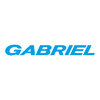
I applied via Walk-in and was interviewed before May 2021. There were 4 interview rounds.
Group discussed on Di
scipline spelling topic and explain
(1 Question)
- Q1. Self introduction explain
(1 Question)
- Q1. Explain and overall experience
(1 Question)
- Q1. Discipline and working hour and salary discuss
Interview Preparation Tips

I applied via Recruitment Consultant and was interviewed in Sep 2021. There was 1 interview round.
Interview Questionnaire
3 Questions
- Q1. Shop floar and trouble shooting
- Q2. Kaizen, poka yoke, oee ,reduce ppm
- Q3. Smed project
Interview Preparation Tips

I appeared for an interview in Jan 2022.

(2 Questions)
- Q1. Why should we hire you?
- Q2. Tell me about yourself.
Interview Preparation Tips
I am working on subros ltd
9.6 years old
Present time my role is production shift inches rotor machining and shaft line.


(2 Questions)
- Q1. Robotics knowledge
- Q2. Xyz
(2 Questions)
- Q1. Robotics knowledge
- Q2. Xyz
Interview Preparation Tips
Roop Polymers Interview FAQs
Tell us how to improve this page.
Roop Polymers Interviews By Designations
- Roop Polymers Production Engineer Interview Questions
- Roop Polymers Marketing Engineer Interview Questions
- Roop Polymers Security Officer Interview Questions
- Roop Polymers Assistant Engineer Interview Questions
- Roop Polymers Engineer Interview Questions
- Roop Polymers Senior Engineer Interview Questions
- Roop Polymers Quality Engineer Interview Questions
- Roop Polymers Senior Engineer Purchase Interview Questions
- Show more
Interview Questions for Popular Designations
- Assistant Manager Interview Questions
- Assistant Manager Maintenance Interview Questions
- Assistant Electrical Engineer Interview Questions
- Assistant Manager Quality Interview Questions
- Assistant Manager - Production Interview Questions
- Assistant Engineer Production Interview Questions
- Assistant Manager Quality Assurance Interview Questions
- Assistant Professor Interview Questions
- Show more
Assistant Engineer Interview Questions from Similar Companies
Roop Polymers Assistant Engineer Reviews and Ratings
based on 11 reviews
Rating in categories
|
Quality Engineer
71
salaries
| ₹2.2 L/yr - ₹4.8 L/yr |
|
Engineer
69
salaries
| ₹2.3 L/yr - ₹5.5 L/yr |
|
Senior Engineer
64
salaries
| ₹3.6 L/yr - ₹7.2 L/yr |
|
Assistant Manager
55
salaries
| ₹5.2 L/yr - ₹10.4 L/yr |
|
Assistant Engineer
55
salaries
| ₹1.8 L/yr - ₹4.2 L/yr |

JBM Group

Subros
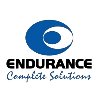
Endurance Technologies

Spark Minda
- Home >
- Interviews >
- Roop Polymers Interview Questions >
- Roop Polymers Assistant Engineer Interview Questions


